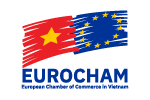The EU-ASEAN Business Council is delighted to present the second EU-ASEAN Business Sentiment Survey, the annual barometer of European business confidence and outlook in the ASEAN region. Views from a wide range of companies and industries in all ten ASEAN markets are captured in our survey.
The final results are now out and the results may be found here.
Key findings include:
74% of respondents project an increase in ASEAN profits in 2016
Almost two-thirds plan to expand their operations and headcount in ASEAN
85% plan to increase their level of trade and investment in the region
74% expect ASEAN's importance to their global revenues to increase over the next five years
66% of believe that the EU should pursue a region-to-region FTA with ASEAN
58% feel that they are at a competitive disadvantage without an EU-ASEAN FTA
Introduction from Our Chairman
The second annual EU-ASEAN Business Sentiment Survey reaffirms the ASEAN region’s position as a bright spot in the global economy and a focus for European investment in the year ahead.
At a time when surveys in some other Asian markets show companies taking a more cautious approach, European businesses in ASEAN overwhelmingly expect their profits to grow and their operations to expand over the medium term. Nearly two-thirds expect their ASEAN revenues to grow in importance relative to worldwide revenues over the next five years. More than two-thirds of respondent companies are planning to expand operations and increase employment in ASEAN over the next five years, good news for jobs and investment. This is consistent with our 2015 survey results, suggesting a steady trajectory of strengthening European presence in South East Asia.
Business optimism is driven by a number of factors. First, our respondents report confidence in the growth potential of ASEAN markets, which is powered by large, youthful populations, strong consumer sentiment and skilled workforces. Second, ASEAN member states are embracing external trade as a driver of growth and are demonstrating their commitment to enhancing economic ties among themselves and with the rest of the world.
European business is also encouraged by measures to strengthen and formalize trade ties between the EU and ASEAN member states. The recently concluded EU-Vietnam and EU-Singapore FTAs are seen as building blocks to an overarching region-to-region agreement, and will pave the way for bilateral negotiations with Malaysia, Indonesia, the Philippines and Thailand.
Looking forward, our survey findings show that European businesses in the region are enthusiastic about the prospect of an EU-ASEAN FTA. The EU is already ASEAN’s largest source of foreign investment and its second largest trading partner, and a region-to-region FTA would be a powerful catalyst for an even closer, mutually beneficial economic relationship between our two regions. It would also be the world’s first region-to-region FTA, and a landmark achievement in international trade integration.
However, our results illustrate that much work remains to be done to ensure that all businesses – local, European, and international – can maximize the obvious growth potential of the ASEAN region.While our respondents are optimistic, they also want to see deeper engagement between EU and ASEAN governments on trade and investment issues. Since the 2015 survey, there has been progress, but still more than half of European businesses say that the EU can be more engaged in supporting European businesses, and a similar number of respondents reported that they are only sometimes, rarely or even never consulted by ASEAN governments. As a result of this insufficient engagement between governments and the private sector, European businesses report a lack of awareness about how to leverage existing economic agreements, and how their businesses can benefit. Looking at the ASEAN Economic Community, for example, fully half of European companies surveyed indicated that they were unsure how the AEC would impact their business.
With trade growth slowing in some of the world’s largest economies, China coping with industrial overcapacity and the American economic debate showing increasing signs of an inward turn, governments and businesses in ASEAN have a unique opportunity to work together to plot a course towards sustainable and inclusive growth. Consistent, substantive dialogue between businesses and EU and ASEAN governments are essential to the successful conclusion and implementation of high-quality trade and investment agreements that will lift up both European and South East Asian economies and peoples.
The key takeaway from this year’s survey is clear: European business is fully committed to growing in ASEAN, and is ready and willing to play their part in helping to promote regional development. European companies have a long-term stake in the continuing success of ASEAN and its member states–almost half of the respondents in our 2016 survey have been in the region for 20 years or more and many of the EU-ASEAN Business Council’s members have been operating in South East Asia for close to a century. The enduring ties between the EU and ASEAN can and will only grow stronger as we move forward onto the next phase of our economic relationship.
Donald Kanak
EU-ASEAN Business Council
Chairman









































